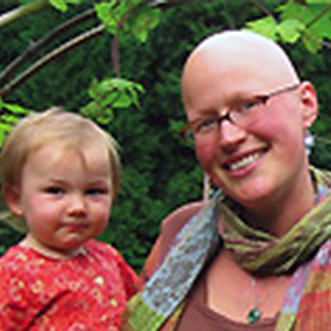Saving the Farm
Open gallery

Delusional optimists. That’s the moniker opposing counsel gave Brenna Bell and her band of grassroots organizers from Tryon Life Community Farm, a nonprofit organization dedicated to sustainability education. It ended up becoming a badge of honor.
After more than a year of aggressive campaigning–including gathering support from the city of Portland, Metro regional government, Tryon Creek supporters, and thousands of individuals–Tryon Life Community Farm emerged from the woods victorious. With the help of countless supporters, they raised $1.6 million to prevent development of the farm’s seven-acre site near Lewis & Clark Law School. A Portland-area builder had planned to raise a 23-home subdivision on the land, surrounded on three sides by Tryon Creek State Natural Area.
“The spirit of philanthropy is alive and well,” says Bell, president of the farm’s board of directors. “We proved that people get excited about tangible local efforts for good. Our success nurtures hope.”
The Oregon Sustainable Agricultural Land Trust now holds title to the land, and Tryon Life Community Farm manages operations of the demonstration center or “ecovillage.”
While Bell was attending law school, her partner lived at the farm. Bell chose Lewis & Clark because of its stellar environmental law program. She didn’t intend to be a lawyer in the traditional sense. She wanted to be an activist with better tools.
After law school, the couple moved to Southern Oregon but returned to Portland in November 2003, when development threats to the farm became ominous. They decided to fight to save the farm as their home and as a full-time living laboratory for the Portland community.
Sixteen adults and three children live on the site. Collectively, they share skills in natural building, environmental law, gardening, food preservation, community activism, permaculture farming, and multimedia art, which they use to teach social and ecological responsibility.
“I love living in an intentional community,” says Bell, who grew up in rural Washington and spent her summers at Buck Creek Camp in the foothills of Mount Rainier.
Bell has a special affinity for the farm’s maple grove, where her daughter Ember, now 11⁄2, was born. It’s the place where residents gather to celebrate and to resolve problems. With the community’s help in child rearing, Bell is also able to pursue part-time nonprofit legal work. “Ember is a 100-percent community kid,” she says.
“Hundreds of people around the city have told me they’ve been inspired by our work,” she says. “Given the support we’ve received, I think it’s clear we’re contributing something valuable to the Portland community.”
–by Pattie Pace
More L&C Magazine Stories
Lewis & Clark Magazine is located in McAfee on the Undergraduate Campus.
MSC: 19
email magazine@lclark.edu
voice 503-768-7970
fax 503-768-7969
The L&C Magazine staff welcomes letters and emails from readers about topics covered in the magazine. Correspondence must include your name and location and may be edited.
Lewis & Clark Magazine
Lewis & Clark
615 S. Palatine Hill Road MSC 19
Portland OR 97219

